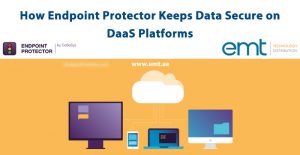After months of lockdown perhaps we’ve been lulled into thinking that the Covid-19 outbreak is in decline despite a few outbreaks here and there. However, the nature of pandemics is one of waves.
Without a vaccine, pandemics can spring back to life, disrupting the normal order again and again. A second wave can even be worse than the first one. History teaches us that pandemics keep recurring which is why medical experts are urging caution as lockdowns are lifted.
That said if social distancing and other measures are adhered to the number of people infected by outbreaks will subside over time. But as small businesses get back on their feet it’s a good time to take stock and plan for a second wave that could be as equally damaging as the first.
Today, even though it may seem as we’re gradually moving to a level of normality there’s still a chance we will go through another tranche of infections. Being ready for a next wave is key to creating a resilient business, one that can ride through pandemic waves but one that is also equipped to meet difficult times no matter their cause.
Below is a list of points that can help a small business be ready for disruption in the event of a resurgent pandemic. Some may be self-evident, some may have already been adopted and some may be useful reminders.
Taking the lead
- Nominate someone in the company who can act as a coordinator responsible for bringing people together and creating a team that can plan for and manage through a crisis. It’s difficult trying to do these things on your own even if you only have a handful of employees.
- The coordinator / team can create a crisis plan and handle the various aspects of your response such as security, facilities, communications, and supply chain, that is, whatever is relevant to your business.
Keeping the business going
- During a second, or even a third wave, your business may be affected again. Even if the wave is less intense you can expect an increase in absenteeism, a reduction in sales or foot traffic, and possibly even less productivity.
- In short, a crisis plan should include everything needed to sustain operations so the business can operate with minimal face-to-face interaction between employees, customers, and suppliers. Ideally, operations should also be able to continue if key employees are temporarily unavailable.
- The supply chain for most businesses is critical. There may be a need to identify alternative suppliers and delivery channels depending on the nature of your business.
- How long will employees be paid if business operations are suspended? Can people work remotely and if so do they have the necessary cybersecurity? Who will coordinate and manage remote working?
- Make sure that all critical data can be accessed remotely and ensure that each worker has the level of access they need. It goes without saying that remote working employees will need a VPN to securely connect to the business network or business cloud applications. BullGuard VPN is not only super tough and robust it is also available at a striking low cost, protecting up to six devices for only a few pounds a month.
- An important point in this process is developing a technology plan that identifies critical functions, such as securing employee end devices and issuing and recovering login and password information. BullGuard has developed Small Office Security specifically for small business end device protection such as laptops and smartphones, as well as desktop PCs.
- Tech plans should also make provisos for remote payroll, billing, and collection if these functions are not already in place.
Telling it like it is
- Employees and stakeholders need to be kept informed about the business should you need to suspend or cease operations. Both groups need to be aware of the actions you are taking if there is a confirmed case or an outbreak in your place of business in a second wave.
- Ensure you have the phone numbers and personal email addresses of employees so you can stay in contact remotely if necessary.
- Prepare basic key messages and develop internal and external information channels that are targeted to specific audiences. Be sure that the messaging you create is tailored to each audience. For instance, health and prevention messages aimed at employees and business adjustments that are being made, for stakeholders and relevant product/service info for customers.
Your marketing messages
- Access to a full contact list of customers is important so you can maintain contact with them during operational disruptions. It’s also a good idea to develop appropriate awards for customers such as discounts and buy one/get one promotions.
- Use social media to reach out to your customers and build a following. This helps keep customers on-board and ensures they are informed about offers, operations, and activities during a disruption. Ensure your tone is empathetic and compassionate given that customers may be in various stages of grief or stress.
- A chat feature on your website is helpful so customer queries can be answered in real-time. If this isn’t possible, a unique email box for pandemic-specific questions, suggestions, or concerns can be equally helpful. If your website has a blog, use it to keep customers up to date about your business and its activities.
- Your website and social media channels are also important for conveying information to customers such as delays in booking appointments, hold-ups in processing or shipping impediments, and what you are doing about it.
BullGuard is in the business of keeping our customers safe with multi-award-winning protection that defends against all types of threats from ransomware to phishing emails hiding malicious code. This protection includes a triple layer threat detection engine and advanced machine learning that automatically detects emerging new threats. We also have a dedicated focus on small businesses with technology developed to meet the specific needs of small office operations. You can find out more here.






